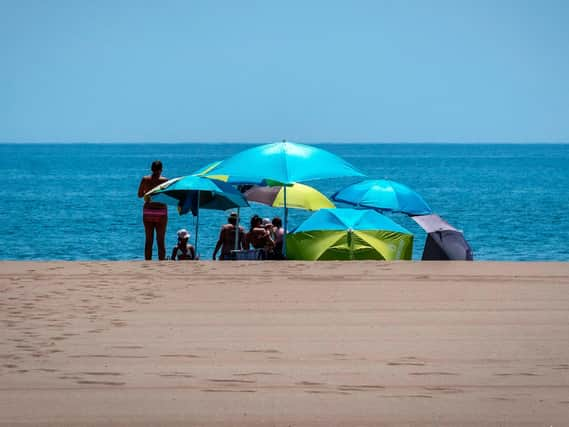Scammers target families with fake caravan listings, bogus refunds and cheap holiday cons


The trade association said criminals are taking advantage of people hoping to go on a UK-based "staycation", with fake adverts for caravans and motorhomes on auction websites.
They are also using uncertainty around coronavirus travel restrictions and cancellations to target their victims and commit fraud, it said.
Advertisement
Hide AdAdvertisement
Hide AdCriminals will impersonate trusted organisations such as airlines, travel agencies or banks.
Victims could be targeted by scam emails, telephone calls, fake websites and posts on social media and auction websites.
Customers are being reminded to follow the advice of the Take Five To Stop Fraud campaign and pause to think before parting with their money or information in case it is a scam.
Katy Worobec, managing director of economic crime at UK Finance, said: "Criminals will exploit the impact of the coronavirus pandemic on people's holiday plans to commit fraud, whether it's advertising fake listings for caravans or pretending to offer refunds for cancelled flights.
Advertisement
Hide AdAdvertisement
Hide Ad"The banking and finance industry is working closely with law enforcement to crack down on these cruel scams, but we need others to play their part too. It's important that auction websites and social platforms take swift action to remove fraudulent posts and listings being used to promote holiday scams.
"We would urge customers to also be on the lookout for scams and follow the advice of the Take Five To Stop Fraud campaign. Always be wary of any requests to pay by bank transfer when buying goods or services online and instead use the secure payment options recommended by reputable websites.
"It's also important to question any emails, phone calls or social media posts offering refunds for cancelled holidays and not to click on links or attachments in case it's a scam. Instead, contact organisations directly to confirm requests using a known email or phone number such as the one on their official website."
Here are some scams to watch out for:
- Caravan scams
Criminals place fake listings for caravans and motorhomes on auction websites, citing lockdown restrictions as the reason why vehicles cannot be viewed in person. Vehicles are advertised at attractive prices to tempt people, but the goods do not exist or do not arrive after they are paid for.
Advertisement
Hide AdAdvertisement
Hide AdUK Finance suggests asking to see vehicles over video if you are unable to see them in person, and using secure payment methods rather than requests to pay by bank transfer.
Using a credit card when making purchases over £100 and up to £30,000 will give you added protections under Section 75 of the Consumer Credit Act if something goes wrong with the purchase.
- Fake refunds for cancellations
Thousands of customers have applied for refunds for cancelled flights or holidays.
Criminals may exploit this situation to defraud people via phishing emails, spoof calls which appear to come from a legitimate company, or social media posts and adverts claiming to be offering refunds from airlines, travel providers or banks.
Advertisement
Hide AdAdvertisement
Hide AdOften, emails and posts will include links leading to fake websites used to steal personal and financial information that can infect a victim's device with malware.
Remember to question uninvited approaches and contact organisations directly to confirm requests using a known email or phone number.
- 'Cheap travel deal' scams
Criminals offer "cheap travel deals" to obtain your money and information.
Websites may look similar to the genuine organisation's but subtle changes in the URL may indicate it is fraudulent.
Advertisement
Hide AdAdvertisement
Hide AdWebsites may appear professional and convincing, using images of luxury villas and apartments that do not exist. They are offered for rent, often at discounted prices and require a deposit to be made which is never returned.
If something is advertised at a rock-bottom price, ask yourself why.
Read online reviews from reputable sources to check websites and bookings are legitimate. Access the website you are purchasing from by typing it in to the web browser and avoid clicking on links in unsolicited emails.